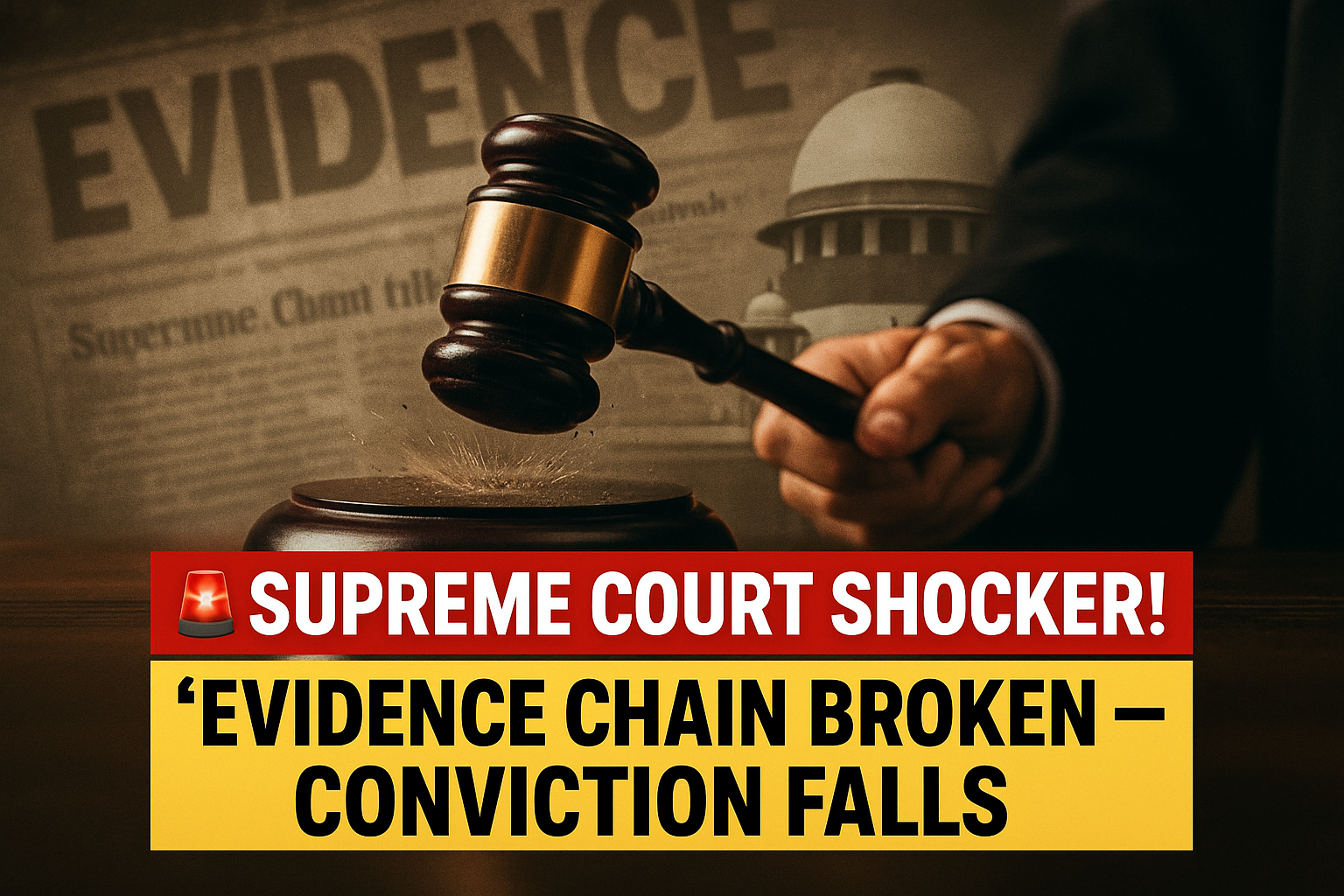Introduction
The Supreme Court of India recently delivered a landmark judgement that the conviction cannot be sustained when the chain of circumstantial evidence is incomplete, if the motive remains unproven and the disclosure statement lacks sufficient credibility. The judgment is given in the 2006 Murder case involving a police officer. This case highlights the importance of fair trial, credible evidence and judicial scrutiny in upholding justice.
Background
The case is about the murder of a police officer in March 2006. The prosecution alleged that the victim had lent ₹ 1 Lakh to another policeman who is Accused 1. When the accused asked to repay the amount, the repayment did not occur till the deadline given by the Accused 1 then the victim lured to the accused house under the pretext of settling the debt. Accused 2 who is the wife of accused 1 along with her brother and brother-in-law attacked the victim using chilli powder and sharp weapon. Later the trial court acquitted accused 1 due to the strong Alibi, but convicted Accused2, Accused3 and Accused 4 under the section 302 r/w section 34 of the Indian Penal Code. The Karnataka high court later upheld this conviction. The matter eventually reached the Supreme Court of India and defence challenges the basis of the conviction.
Supreme Court Analysis
The bench of the Supreme Court in this matter comprising K.V. Viswanathan and K. Vinod Chandran and they highlighted some of the points which are follows: –
1. Motive not proven
The recovery of the loan is the primary reason that has been alleged, and which formed the foundation of the motive, could not be proven convincingly. The court ruled that the absence of motive weighed in favour of the accused.
2. Recovery of the body
The statement given to the police officer while in custody could not be admitted as evidence under section 25 and 26 of the Indian Evidence Act.
3. Recovery of weapon unreliable
The prosecution claimed that the chopper was recovered based on disclosure by Accused 4. However, the witness to the recovery admitted signing documents at the police station instead of the actual crime scene, rendering this evidence doubtful.
At last, the Supreme Court of India states that the prosecution failed to present the unbroken chain of evidence and the motive was unproven, and the recovery of the body was covered with clouds and both confession and weapon recovery were unreliable; the case could not stand on circumstantial evidence alone.
Conclusion
This judgement of the case highlights the role of complete and credible evidence in securing conviction. The Supreme Court reaffirmed that no person should not be convicted merely on suspicion or partial evidence. The judgement also gave a reminder to the investigating team and the lower court about maintaining a flawless chain of evidence ensuring that the justice is based on facts rather than conjecture.
About the Author
Tushar Kumar is a final-year BBA-LLB student at Guru Gobind Singh Indraprastha University. With a strong interest in Intellectual Property Rights, he enjoys exploring how law interacts with innovation and creativity. He’s equally passionate about legal writing, Research and believes in making complex legal ideas easier to understand through clear articles. Tushar continues to deepen his understanding of the law while contributing thoughtful pieces on contemporary legal issues.


What’s the case name?